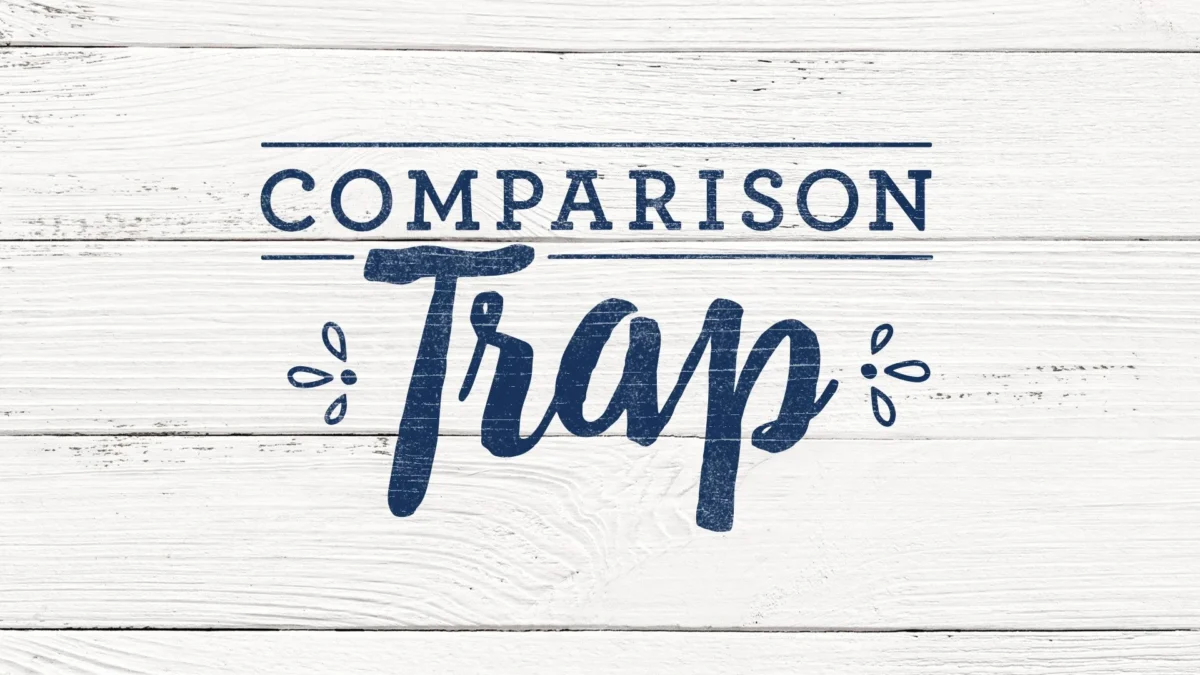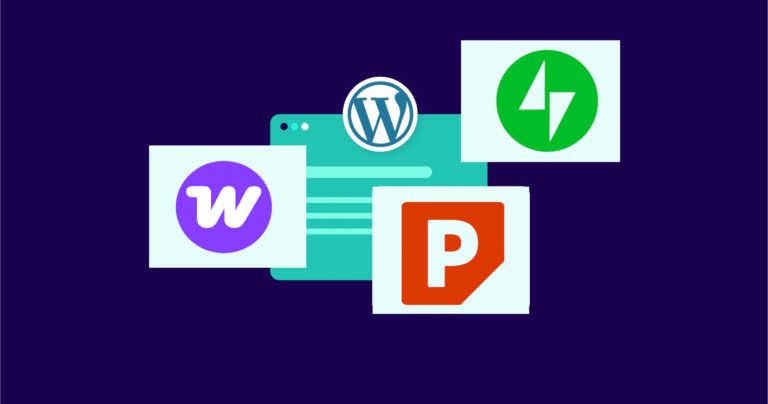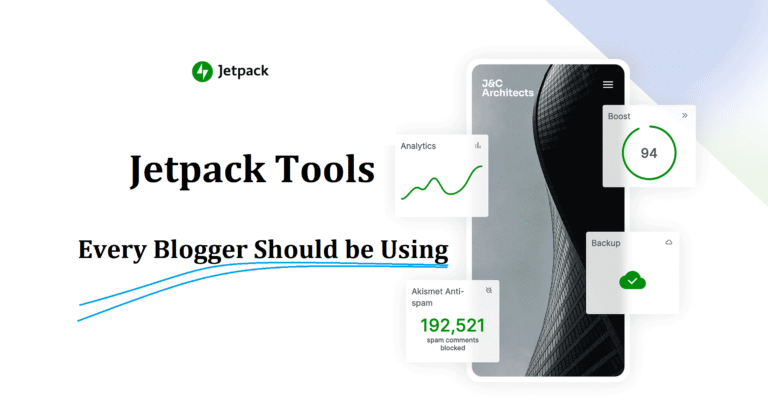Truth About Avoiding Burnout as a New Blogger in 2026

Your blog won’t die if you don’t post every single day – but you might.
Avoiding burnout when new to blogging is something I wish someone had taught me before I face-planted into the concrete wall of unrealistic expectations.
Twice, actually. Because apparently I’m a slow learner.
The first time I started blogging, I lasted exactly 40 days before I wanted to break my laptop into pieces. The second time? Three months, but only because I was too stubborn to quit and too exhausted to continue.
Here’s the thing nobody tells new bloggers: the enthusiasm that gets you started is the same thing that’ll burn you out if you don’t learn to manage it.
My First Blogging Disaster (A Cautionary Tale)
Picture this: It’s January 2019, and I’m convinced I’m going to be the next big blogging sensation. I had grand plans, color-coordinated editorial calendars, and enough motivation to power a small country like the Maldives.
I decided I’d post every single day. Because that’s what “successful” bloggers do, right?
By day 10, I was already behind. By day 20, I was writing garbage just to fill space. By day 30, I was having anxiety dreams about WordPress dashboards. And by day forty-something, I dramatically announced I was “taking a break from blogging” (which lasted two years).
The problem wasn’t that I lacked ideas or couldn’t write. The problem was I’d set myself up for failure from day one without even realizing it.
Why New Bloggers Burn Out So Fast

We approach blogging like a sprint rather than a marathon
New bloggers – myself included – often approach blogging with the same energy you’d use to clean your house before guests arrive. It’s unsustainable.
We compare our day one to someone else’s year ten.
I spent hours scrolling through established blogs, wondering why my content didn’t look as polished or get as much engagement.
Spoiler alert: they’d been doing it for years.
Read How Blogging Without Comparison Helped My Blog Grow Faster
We think consistency means posting constantly
Somewhere along the way, “be consistent” got translated to “post every day or you’re a failure.” That’s like saying you need to go to the gym for three hours daily to be healthy.
The truth is, avoiding burnout when new to blogging starts with understanding that blogging is a long-term game, not a quick hustle.
Perfectionist Trap That Nearly Killed My Blog

My second attempt at blogging got off to a better start. I’d learned from my first disaster and decided to post three times a week instead of daily.
Progress, right?
Wrong. Because I made a different mistake – I became obsessed with making every post perfect.
I’d spend eight hours writing a 1,000-word post, then another four hours editing it, then two more hours designing the perfect Pinterest graphic. One blog post was consuming entire weekends.
I remember staying up until 2 AM tweaking the same paragraph for the fifteenth time, convinced that if it wasn’t absolutely perfect, nobody would read it. I found myself crying over a blog post about managed WordPress hosting on Friday.
That’s when I knew something was seriously wrong.
The Content Creation Hamster Wheel
Here’s what new blogger burnout really looks like: You start creating content faster than you can consume your own life experiences to write about.
I’d wake up each morning with the same panicked thought: “What am I going to write about today?”
I started forcing myself to find blog-worthy lessons in everything. On-page SEO optimization became “SEO Terminology You must know in 2026.”
A bad day at work turned into “How to Stay Positive During Difficult Times.”
I wasn’t living my life anymore – I was mining it for content. Every experience got filtered through “Is this bloggable?” which is exhausting and kind of depressing when you think about it.
The worst part?
I started doing things specifically because they might make good blog content, not because I honestly wanted to do them.
Social Media Pressure Cooker

Let’s talk about the elephant in the room: social media promotion.
As a new blogger, you’re told you MUST be on Instagram, Pinterest, X, Facebook, TikTok, and probably three other platforms that didn’t exist when you started reading this sentence.
I tried to maintain a presence on all of them. Do you know how much work that is?
Creating content for your blog is already a full-time job, but then you need to create different versions of that content for each platform, engage with other people’s content, join Facebook groups, pin things to Pinterest boards, and somehow find time to actually live the life you’re blogging about.
At the time, I didn’t know social media management tools like SocialBee, Ocoya, and Iconosquare would make it easy.
I had a spreadsheet (of course, I did) tracking my posting schedule across six different platforms. Color-coded by content type and audience.
Looking back, I’m amazed I didn’t have a complete breakdown earlier.
Comparison Game Will Destroy Your Soul

Social media makes burnout worse because you’re constantly seeing other bloggers who seem to have it all figured out.
Their Instagram feeds look perfect, their engagement is through the roof, and they’re launching courses and making six figures while you’re celebrating your first 100 page views.
I fell into this trap hard.
I’d spend hours analyzing other bloggers’ content, trying to figure out their “secret.” I joined Facebook groups where people shared their monthly income reports, and I felt like a failure because I was making $12 a month from affiliate links while others were pulling in thousands.
The truth I wish I’d known then: Most of those success stories leave out the years of slow growth, the failures, the posts that flopped, and the mental health struggles.
You’re comparing your behind-the-scenes to their highlight reel.
When Your Blog Becomes Your Boss (And Not In a Good Way)
The moment your blog stops being something you enjoy and starts feeling like a demanding boss you can’t quit, you’re heading straight for burnout town.
Population: you.
I started feeling guilty about everything.
Taking a day off? Guilt.
Writing a shorter post than usual? Guilt.
Not responding to comments within an hour? Guilt.
Going on a trip without scheduling posts in advance? Massive guilt.
My blog had become this hungry monster that demanded constant feeding, and I was running out of things to feed it.
I dreaded opening my laptop because I knew a dozen blog-related tasks were waiting for me. Analytics to check, comments to respond to, social media to update, new posts to write, old posts to optimize for SEO…
The list never ended because there’s always something more you could be doing to grow your blog. Always another strategy to try, another platform to join, another optimization to make.
Reality Check That Saved My Sanity

My wake-up call came when my best friend asked me a simple question: “Do you still like blogging?”
I started to give her the usual response about building my brand and growing my audience, but she stopped me.
“No, I mean, do you actually enjoy it? Because you seem miserable every time you talk about your blog.”
She was right.
I’d become so focused on growing my blog that I’d forgotten why I started in the first place. I originally wanted to share helpful content and connect with people who might benefit from AI blogging and more.
Somewhere along the way, it had become all about numbers and metrics, and optimization.
That conversation led to what I now call my “blogging reset.” I took a step back and asked myself some hard questions:
- What did I actually want from blogging?
- What parts did I enjoy, and what parts were making me miserable?
- How could I blog in a way that felt sustainable and fun?
My Anti-Burnout Blogging Rules (That Actually Work)
After two burnouts and one major reset, here’s what I learned about avoiding burnout when new to blogging:
Start Stupidly Small
Instead of posting daily, start with once a week. Or twice a month. Or whatever feels manageable with your actual life.
You can always increase frequency later, but it’s much harder to scale back without feeling like you’re failing.
My current schedule? Few posts per week, sometimes two or three if life gets crazy. And guess what? My blog didn’t die. In fact, it’s doing better than ever because the content is higher quality, and I actually enjoy writing it.
Pick One Social Media Platform (Just One!)
I know, I know.
Every blogging expert says you need to be everywhere. But you know what’s better than being mediocre on five platforms? Being genuinely helpful and engaging on one.
I chose X because it aligned with my content and didn’t require me to be “on” all the time like Instagram or TikTok. Your choice might be different, but please, pick just one and get good at it before adding others.
Create Content Buckets
Instead of frantically searching for new topics every week, I created 8 content categories that I rotate through. This took the pressure off coming up with completely original ideas constantly and helped me stay focused on my blog’s purpose.
My buckets are: AI blogging tips, SEO, Gear, Reviews, Web Hosting, Software/Tools, Deals, and Make Money stuff.
Every post fits into one of these categories, which makes planning so much easier.
Batch Your Work
This one’s huge.
Instead of writing, editing, and publishing posts one at a time, I batch similar tasks together. I write three posts in one session, then edit all three in another session, then create graphics for all three.
Batching prevents that constant task-switching that makes blogging feel overwhelming.
Plus, it’s way more efficient than jumping between writing and editing, and social media promotion throughout the week.
Permission Slips You Need
Sometimes, avoiding burnout when new to blogging means giving yourself permission to do things that feel wrong but are actually healthy:
Permission to post less frequently. Your blog won’t die if you skip a week. Your readers won’t forget about you. Quality over quantity isn’t just a cliché – it’s survival advice.
Permission to ignore trends. Just because everyone else is making TikToks doesn’t mean you have to. Just because list posts are popular doesn’t mean you can’t write personal essays. Do what feels authentic to you.
Permission to have a life outside your blog. This sounds obvious, but it’s easy to forget when you’re caught up in the hustle culture of online business. Your best content will come from actually living, not from constantly creating.
Permission to suck at first. Your early posts will be terrible. That’s not a character flaw – that’s being human. Every blogger you admire has a catalog of cringe-worthy early content. The only way to get better is to keep going.
Building Sustainable Systems (Without Going Crazy)

The key to long-term blogging success isn’t working harder – it’s working smarter.
But “working smarter” doesn’t mean optimizing every minute of your day or using seventeen different productivity tools.
The Simple Editorial Calendar
I use a basic Google Calendar to plan my content. Each post gets its own event with the working title and publish date. That’s it.
No complicated spreadsheets, no fancy project management tools, just a simple visual overview of what’s coming up.
This prevents the last-minute panic of “What am I going to write about this week?” while keeping things flexible enough to adjust when inspiration strikes or life happens.
The Two-Week Buffer
I always try to stay two weeks ahead of my publishing schedule. This buffer has saved my ass more times than I can count. When I get sick, or work gets crazy, or I just need a mental health break, I’m not scrambling to create content at the last minute.
Building this buffer takes time, but it’s worth every extra hour you put in upfront. Start by writing just one extra post, then gradually build up your buffer over time.
The “Good Enough” Principle
Perfectionism will kill your blog faster than writer’s block.
I had to learn to embrace “good enough” – posts that were helpful and well-written but not necessarily perfect.
This doesn’t mean publishing garbage. It means recognizing when a post serves its purpose and not spending six more hours trying to make it marginally better.
Most readers won’t notice the difference between “good” and “perfect,” but you’ll definitely notice the difference in your stress levels.
What Success Really Looks Like

Here’s the thing about avoiding burnout when new to blogging: you have to redefine what success looks like. If your only metric is rapid growth, you’re setting yourself up for disappointment and exhaustion.
My definition of blogging success now includes:
- Writing content I’m proud of
- Helping people solve real problems
- Maintaining my mental health and relationships
- Learning and growing as a writer
- Having fun with the process
Notice that “going viral” and “making six figures in my first year” aren’t on that list. Those things might happen eventually, but they’re not worth burning out over.
The Long Game Mindset
The bloggers who last are the ones who think in years, not months.
They understand that building an audience takes time, that finding your voice is a process, and that sustainable growth beats rapid burnout every single time.
I wish I could go back and tell my frantic, overwhelmed beginner self to slow down. To enjoy the process. To remember that blogging is supposed to be fulfilling, not just another source of stress.
Your blog will still be there tomorrow if you take a day off today. Your audience will still care about you if you post once a week instead of every day. And you’ll produce much better content when you’re writing from a place of joy instead of obligation.
Final take: Your Blog Should Add to Your Life, Not Consume It
Avoiding burnout when new to blogging isn’t about finding the perfect system or following someone else’s rules.
It’s about creating a blogging practice that fits into your actual life instead of taking it over.
Start small, be patient with yourself, and remember why you wanted to start blogging in the first place.
Was it to share your knowledge?
Connect with like-minded people?
Build something meaningful?
Keep that “why” at the center of everything you do.
Your blog is supposed to be an expression of who you are, not a prison that keeps you from living. Don’t let the pursuit of blogging success steal the joy from the thing you originally loved about writing and sharing.
The internet needs your unique voice and perspective. But it needs the authentic, sustainable version of you – not the burned-out, exhausted version who’s trying to keep up with impossible standards.
Take it slow.
Be consistent but not obsessive. Create content that matters to you. And please, for the love of all that’s holy, don’t try to post every single day when you’re just starting out.
Trust me on this one.
FAQs
How often should I post as a new blogger?
Start with whatever you can maintain without stress – whether that’s once a week, twice a month, or even monthly. Consistency matters more than frequency. I’ve seen successful blogs that post once a month and struggling blogs that post daily.
Find your sustainable rhythm first, then increase frequency only if you want to and can maintain quality.
What if other bloggers in my niche post more frequently than me?
Let them!
Everyone has different circumstances, energy levels, and priorities. Some bloggers are doing this full-time, while others have different life situations than you.
Focus on creating the best content you can at your own pace. Readers prefer quality over quantity, and you’ll burn out trying to keep up with someone else’s schedule.
How do I know if I’m heading toward burnout?
Watch for these warning signs: dreading opening your laptop, feeling guilty about taking days off, constantly comparing yourself to other bloggers, forcing yourself to find blog topics in every life experience, or losing sleep over blog tasks.
If blogging starts feeling like punishment instead of passion, it’s time to step back and reassess.
Should I quit social media promotion to avoid burnout?
You don’t have to quit entirely, but definitely scale back if it’s overwhelming you.
Pick one platform that feels manageable and ignore the rest for now. Many successful bloggers focus primarily on their blog content and use just one social platform effectively rather than spreading themselves thin across multiple platforms.
What if I’ve already burned out – is it too late?
Absolutely not!
Take a real break – not just a few days, but weeks or even months if needed. When you’re ready to return, start smaller than before. Reassess your goals, simplify your systems, and remember what you originally loved about blogging.
Many successful bloggers have comeback stories after burnout or blogging mistakes.
How do I deal with the pressure to monetize quickly?
Slow down. Most successful bloggers took months or years to make significant money.
Trying to monetize too quickly often leads to burnout because you’re focused on income instead of serving your audience.
Build your audience first with genuinely helpful content, and then monetization opportunities will naturally follow.
Is it normal to feel overwhelmed by all the blogging advice out there?
Completely normal! There’s so much conflicting advice about blogging that it’s easy to feel paralyzed. Pick one trusted source of advice and ignore the rest for now.
Focus on the basics: write helpful content consistently, engage with your readers, and learn one new skill at a time. You don’t need to implement every strategy you read about.
How long should my blog posts be?
Long enough to be helpful, short enough to stay interesting. Don’t worry about hitting specific word counts – focus on thoroughly answering your reader’s question or solving their problem. Some topics need 3,000 words, others need 800.
Let the content dictate the length, not arbitrary rules about what performs better in search engines.
Hey there. I would love to hear from you. What’s your story on blogging burnout? Drop a comment.





